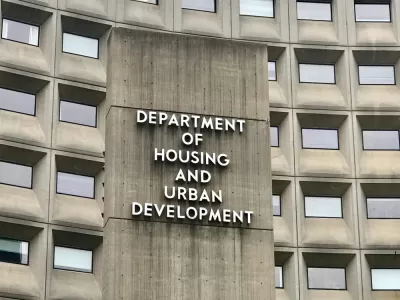Since Trump took office, the administration has blocked multiple affordable housing funding streams. Here's a look at which funds have been frozen, which have been reinstated, and which are in the courts.

A series of grant cancellations and staff cuts at HUD under the Trump administration — driven by the newly created Department of Government Efficiency (DOGE) — have disrupted fair housing enforcement, affordable housing development, homelessness funding, and climate-related housing grants. While some of these cuts, such as Fair Housing Initiative Program (FHIP) funds and Section 4 capacity-building grants, have been temporarily reversed following legal action or pressure from large organizations, many uncertainties remain.
A federal judge initially blocked HUD’s FHIP cuts, but the ruling was dissolved in April, and advocates fear future cancellations. Lawsuits are ongoing. Changes to the federal grant system now require DOGE to review and post funding opportunities, raising concerns about access and ideological filtering. Technical assistance and climate-related housing grants have also been frozen or delayed, stalling projects and leading to layoffs.
Meanwhile, new Continuum of Care grant contracts include vague and politically charged language — restricting promotion of “gender ideology” and placing immigration-related limits — raising legal red flags. Lawsuits from major cities and housing organizations continue to mount, with more legal confrontations expected as the administration reshapes federal housing policy.
This reporting is part of a joint effort between Shelterforce and Next City to track and explain the sweeping housing policy shifts under the current administration.
FULL STORY: Blocked, Restored, Blocked Again—Housing Funds Are in Legal Limbo

Planetizen Federal Action Tracker
A weekly monitor of how Trump’s orders and actions are impacting planners and planning in America.

Map: Where Senate Republicans Want to Sell Your Public Lands
For public land advocates, the Senate Republicans’ proposal to sell millions of acres of public land in the West is “the biggest fight of their careers.”

Restaurant Patios Were a Pandemic Win — Why Were They so Hard to Keep?
Social distancing requirements and changes in travel patterns prompted cities to pilot new uses for street and sidewalk space. Then it got complicated.

Platform Pilsner: Vancouver Transit Agency Releases... a Beer?
TransLink will receive a portion of every sale of the four-pack.

Toronto Weighs Cheaper Transit, Parking Hikes for Major Events
Special event rates would take effect during large festivals, sports games and concerts to ‘discourage driving, manage congestion and free up space for transit.”

Berlin to Consider Car-Free Zone Larger Than Manhattan
The area bound by the 22-mile Ringbahn would still allow 12 uses of a private automobile per year per person, and several other exemptions.
Urban Design for Planners 1: Software Tools
This six-course series explores essential urban design concepts using open source software and equips planners with the tools they need to participate fully in the urban design process.
Planning for Universal Design
Learn the tools for implementing Universal Design in planning regulations.
Heyer Gruel & Associates PA
JM Goldson LLC
Custer County Colorado
City of Camden Redevelopment Agency
City of Astoria
Transportation Research & Education Center (TREC) at Portland State University
Camden Redevelopment Agency
City of Claremont
Municipality of Princeton (NJ)





























